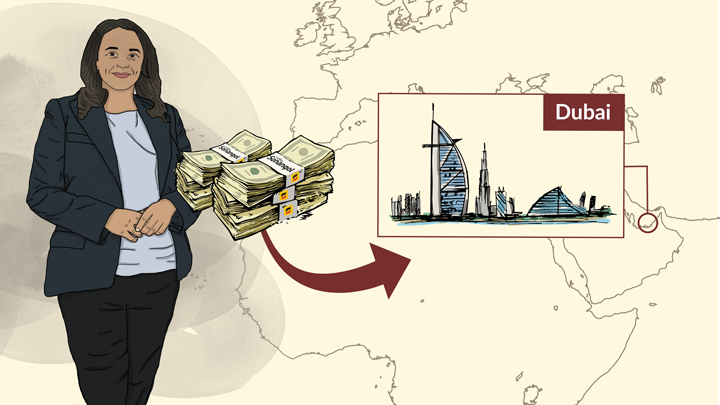A new investigation from the International Consortium of Investigative Journalists reveals two decades of unscrupulous deals that made Isabel dos Santos Africa’s wealthiest woman — and left oil- and diamond-rich Angola one of the poorest countries on Earth.
Here’s why the Luanda Leaks investigation matters, and what we learned along the way:
1 – Massive wealth continues to gush out of the countries that need it most and into offshore tax havens.
For a decade, ICIJ has sought to remove the veil of secrecy that has allowed the rich and powerful to move vast amounts of money into offshore centers like Malta, the British Virgin Islands and Mauritius. Projects including Panama Papers, Paradise Papers and Mauritius Leaks have shown oligarchs, prime ministers, celebrities, criminals and name-brand companies — including Apple and Nike — exploiting loopholes and breaking laws, costing governments billions.
It’s still happening.
Some governments, including the U.K., have made limited reforms, but Offshore Inc. is relentless.
ICIJ uncovered a web of more than 400 companies and subsidiaries in 41 countries linked to Isabel dos Santos or her husband, Sindika Dokolo, including 94 in offshore havens like Malta, Mauritius and Hong Kong.
2 – Accountants provide vital services to money launderers and others who park illicit wealth in offshore shell companies. Regulators have mostly ignored this fact.
The United States, which has imposed some of the world’s toughest anti-money-laundering laws on banks, has no federal law requiring accountants to vet potential clients or report suspicious activity to law enforcement. On paper, European Union rules are far tighter. The EU requires accountants to vet clients and alert national authorities if they suspect a client’s funds “are the proceeds of criminal activity.”
Like banks, accounting firms have to file a suspicious activity report if they believe a client is laundering money. The EU includes Malta, where many companies owned by Isabel dos Santos and her husband are incorporated. Under EU rules, senior executives must approve decisions by accounting firms to sign up “politically exposed persons” – people with links to public office – and the firms must take “adequate measures” to ensure that the source of a client’s money is legitimate. But compliance is spotty: a European Commission study found that accountants are filing just a handful of reports, even as banks file thousands. There’s more: A recent analysis of more than 400 corruption and money-laundering cases documented the involvement of hundreds of professional advisers, including 62 accountancy firms in the United Kingdom.
3 – When enablers help move and hide illicit wealth, they hurt real people.
Angolan authorities recently froze an estimated $1 billion in dos Santos assets. But that is just part of her wealth. At least as much, likely far more, has flowed into offshore accounts, and into luxury homes and other businesses abroad. That wealth will be much more difficult — possibly impossible — for Angolan authorities to recover.
Meanwhile, Angola remains one of the poorest countries in the world. The life expectancy in is just 60, and children die in childbirth at an alarming rate. Hospitals and schools are in disrepair, where they exist at all.
ICIJ and partners also spoke with people whose lives were upended in a very direct way by a project tied to dos Santos. Before dawn on a Saturday in June 2013, soldiers and police forced thousands of residents of a coastal neighborhood out of their homes, according to complaints and letters compiled by a Luanda-based nonprofit. The evictions were to make way for a redevelopment project championed by dos Santos and several of her companies.
Van Oord, a Dutch construction company involved in the redevelopment project, has promised to use its leverage with the Angolan government and contractors to ensure compensation.
4 – Dubai is the new Panama.
One of the most eye-popping revelations of Luanda Leaks is the last-minute transfer of tens of millions of dollars from Angola’s state oil company to one in Dubai, controlled by a dos Santos friend. ICIJ reporting and independent research shows that the Emirate is increasingly a go-to destination for people looking to hide illicit wealth. Where some jurisdictions, like Panama, have become more transparent, Dubai offers companies incorporated and their owners nearly complete secrecy. ICIJ was able to link dos Santos to Dubai only after we obtained secret documents.
5 – Collaboration matters.
Over more than eight months, more than 120 journalists from ICIJ and 36 media organizations in 20 countries pursued leads in the documents and plumbed their significance. They traveled to Angola, interviewed dozens of people, including former dos Santos employees and financial experts, and they pored over hundreds of pages of additional documents, including confidential audits, ethics codes, real estate records and invoices from the Angolan state oil company.
